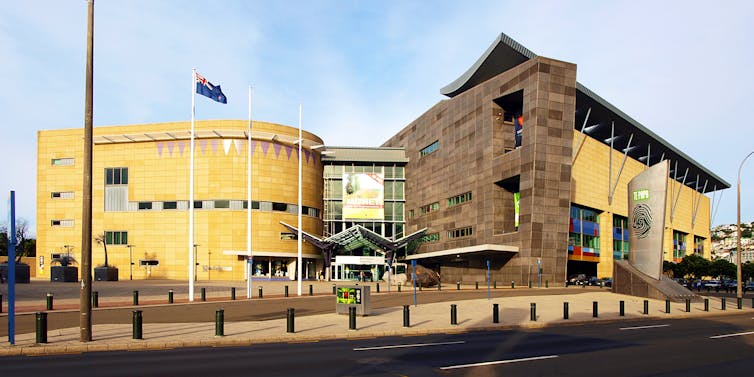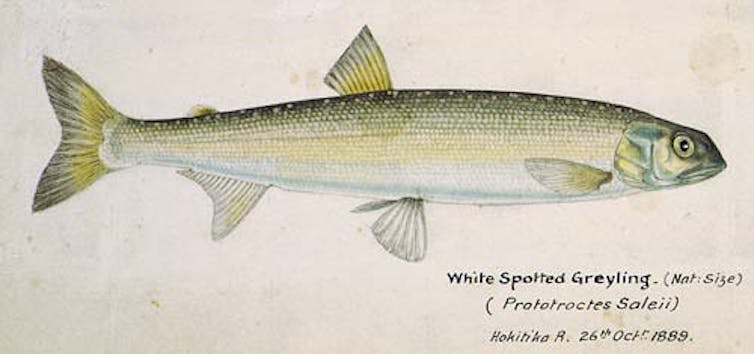Taxonomy, the science of naming things, is under threat
- Written by Nic Rawlence, Lecturer in Ancient DNA, University of Otago
Museums are cathedrals of science, but they are under threat worldwide as part of a malaise of undervaluing museum collections and the field of taxonomy, the science of naming biodiversity.
The Museum of New Zealand Te Papa Tongarewa is the latest example. Te Papa confirmed a restructure in July, following leaked reports. Facing sustained backlash and disquiet in the science community, the museum announced an international review of its collections and has since scaled back its restructure plans.
But jobs remain on the line even though the review panel found the museum didn’t have enough staff to look after all of its collections.
Read more: From Joseph Banks to big data, herbaria bring centuries-old science into the digital age
Taxonomy a keystone of natural history
Taxonomy underpins everything from health to conservation, and biosecurity to the economy.
The international review shows Te Papa is doing a good job in most areas, but needs to improve on several aspects, including access to collections, cataloguing a backlog of specimens and digitisation.
 Museum of New Zealand Te Papa Tongarewa, in Wellington.
from Wikimedia Commons, CC BY-ND
Museum of New Zealand Te Papa Tongarewa, in Wellington.
from Wikimedia Commons, CC BY-ND
These areas of concern were seriously exacerbated by the panel’s finding that Te Papa is understaffed.
The review panel was not asked to comment on the restructure. At that stage, the proposal was to cut 25 positions, 10 of which were in the collections team. This has now been scaled back to at least five jobs in the collections team.
Staff whose positions may be affected were told only a day before the review recommendations were made public.
Read more: Museum or not? The changing face of curated science, tech, art and culture
Museum collections more than sum of parts
Te Papa’s latest leaked restructure document remains a cause for concern. Curators are no longer in the firing line. However, the five natural history collections managers are gone, to be replaced by three assistant curators and two general technical positions. All of this would appear to fall at a lower pay scale.
I congratulate Te Papa on listening to internal and external feedback and increasing their curatorial expertise in neglected strengths, such as marine mammals and seaweeds. Ironically, in the case of marine mammals, this seems to rectify a mistake in making the previous marine mammal expert redundant in 2013.
A member of the international review panel, Tim White at the Yale Peabody Museum of Natural History, told the public broadcaster RNZ:
Te Papa could use more professional collections staff. If they are going to promote the use of their collections … then they need to think creatively about how they could get more staff.
Taking into account the recently published Decadal Plan for Taxonomy and Biosystematics and the 2015 Royal Society Te Apārangi report on National Taxonomic Collections in New Zealand, this is a good opportunity to increase collections staff rather than, at best, approximate the status quo.
It is my hope that the filling of positions in the proposed structure will not result in a loss of areas of taxonomic expertise. Many of Te Papa’s scientists are leaders in their fields, including in areas where Te Papa leads the way internationally. One should not boost the curatorial team at the expense of collections management.
The bigger picture
As an isolated archipelago with unique flora and fauna, New Zealand needs diverse taxonomic expertise to appropriately handle biosecurity and conservation crises. If Te Papa, or museums in general, shed their taxonomic expertise like an unwanted sloughed-off snake skin, it will be up to other institutions to pick up the slack. If not, our biodiversity will suffer.
 The greyling is New Zealand’s only extinct freshwater fish.
from Wikimedia Commons, CC BY-ND
The greyling is New Zealand’s only extinct freshwater fish.
from Wikimedia Commons, CC BY-ND
There has already been a 10% decline in the taxonomic workforce in Australia in the past 25 years, with declines of around 22% in New Zealand over a similar time period. In both countries, a steadily increasing proportion (currently around a quarter) of taxonomists are unpaid or retired. Let’s not make it any worse.
Undervaluing museum collections and taxonomic expertise is not just limited to New Zealand. The scientific world does not want to see another museum disaster, like the preventable fire that destroyed Brazil’s National Museum.
Whether it is collections under threat or museum libraries being lost in the digital age, or even false assumptions resulting in the closure of a museum, if chief executives and museum boards listen to their scientists and the scientific community, hope remains.
Authors: Nic Rawlence, Lecturer in Ancient DNA, University of Otago
Read more http://theconversation.com/taxonomy-the-science-of-naming-things-is-under-threat-106691





